Governance and Civics Worksheets for Ages 3-4
6 filtered results
Difficulty Level
Grade
Age
-
From - To
Subject
Activity
Standards
Favorites
With answer key
Interactive
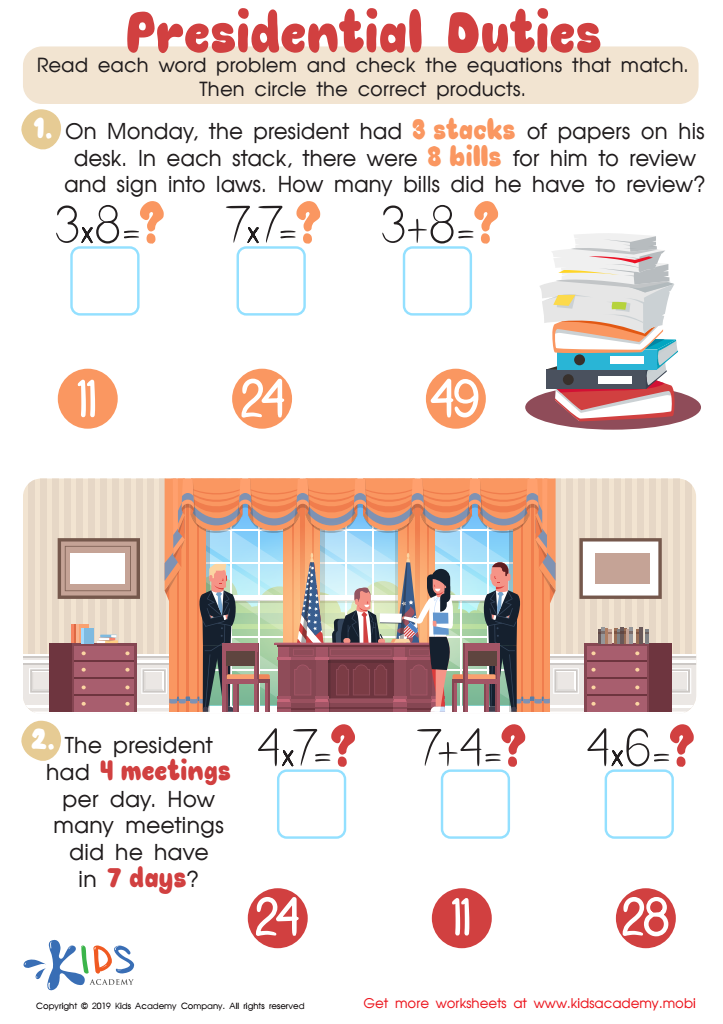

Presidential Duties Worksheet
Presidents have many duties. Utilize this worksheet to review the important ones while solving multiplication word problems. Read each passage, determine the equation, then find the product and select the correct answer.
Presidential Duties Worksheet
Worksheet
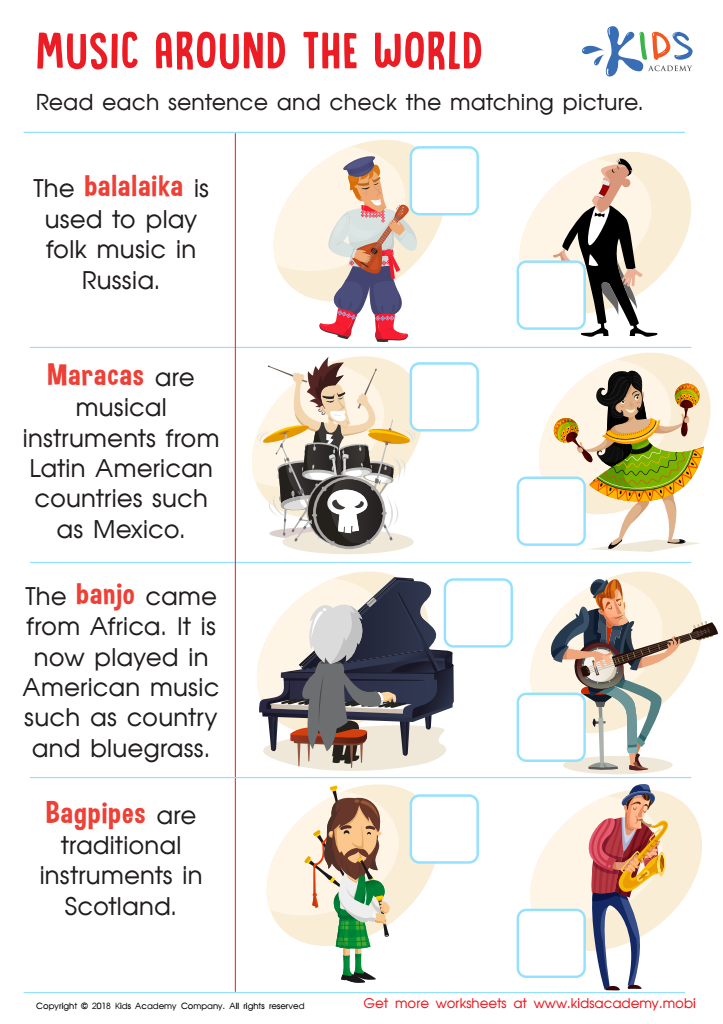

Music Around the World Worksheet
Have your kids read the sentences in this exercise, or assist them if they're not confident readers. The pictures teach them about different cultures' music, like the banjo which comes from Africa and is a part of some American genres. Read each sentence and have them match it to the right image.
Music Around the World Worksheet
Worksheet
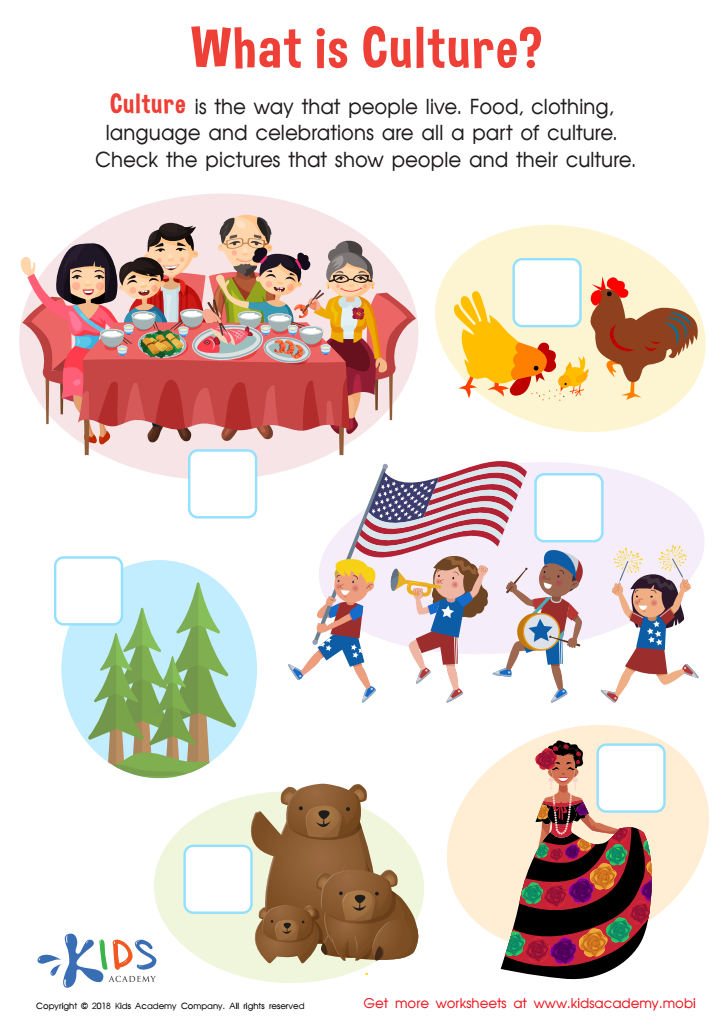

What Is Culture? Worksheet
Before beginning, talk to your kids about different cultures and how they may differ from yours. Explain that culture is the way of life and includes food, clothing, language and celebrations. Ask if they know any friends or classmates with a different culture and see if they can tell you about it. Then, help them look through this printout and check the pictures that show people and their culture.
What Is Culture? Worksheet
Worksheet
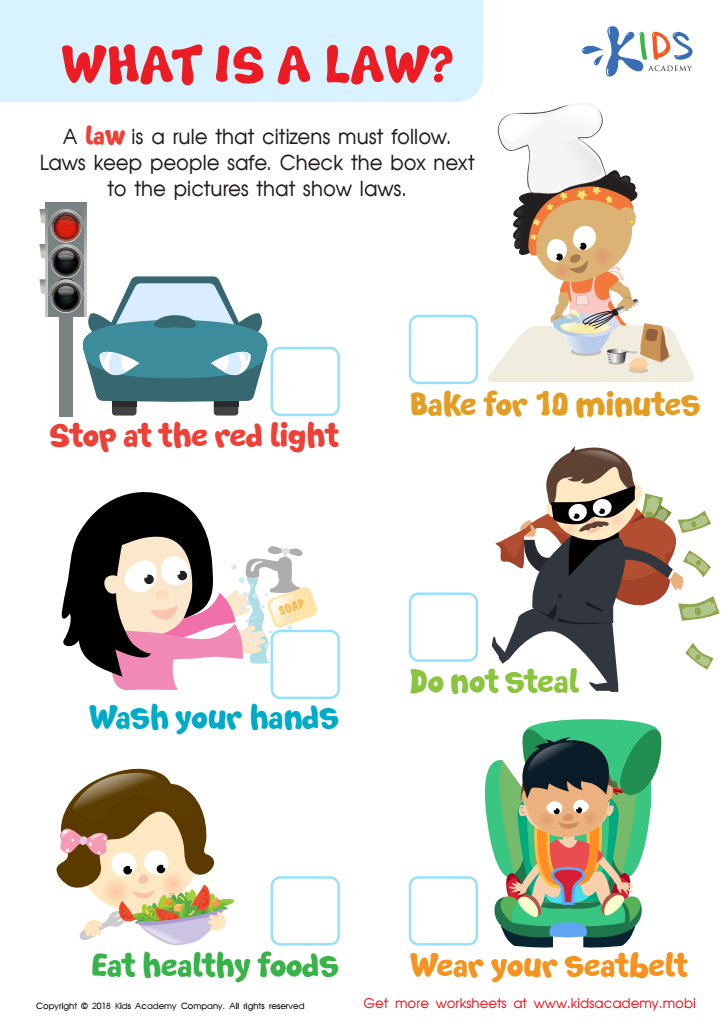

What is a Law? Worksheet
Encourage your students to think about the laws they abide by - at home, school, and the playground. Explain the importance of laws in keeping us safe, then ask them to check the box next to the pictures depicting different laws in a worksheet.
What is a Law? Worksheet
Worksheet
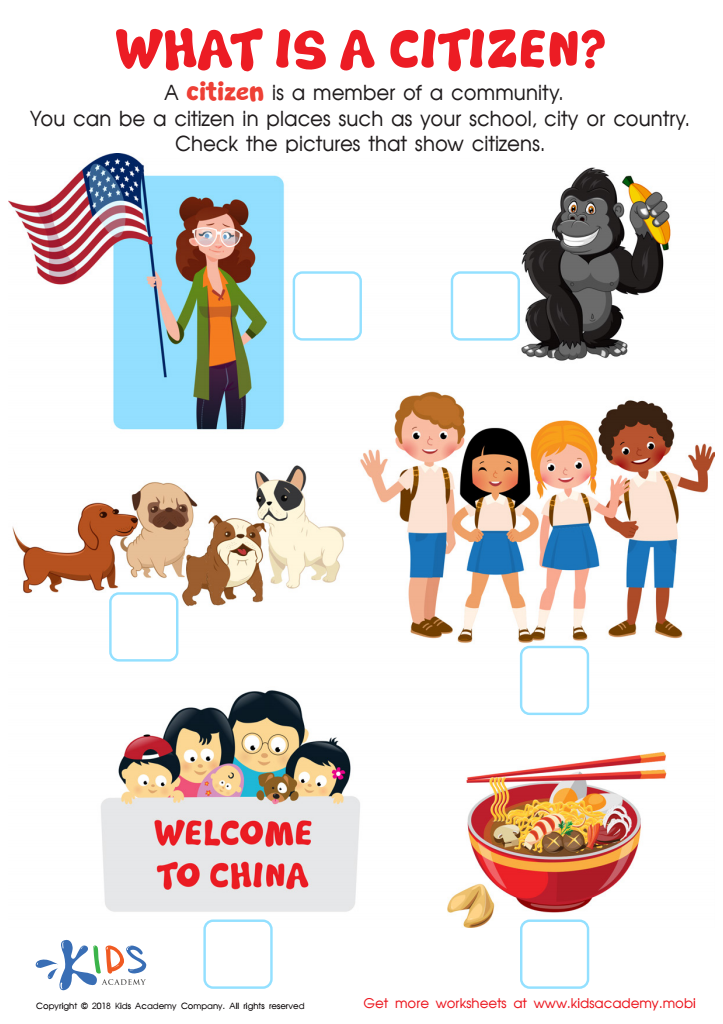

What is a Citizen? Worksheet
Do your students know who a citizen is? Use this worksheet to teach them: a citizen is a member of a community, such as your school, city or country. Look at the pictures in the pdf with your students. Ask them to identify who or what is in the pictures, and help them check which are citizens.
What is a Citizen? Worksheet
Worksheet
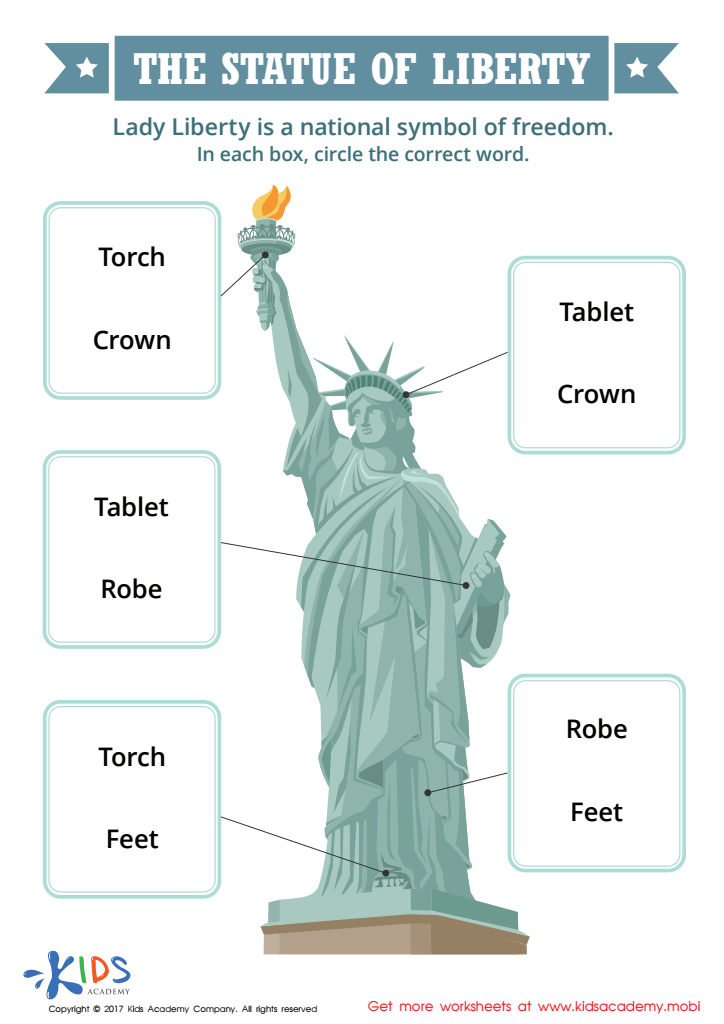

The Statue of Liberty Printable
Introduce the iconic Statue of Liberty with our printable worksheet. Perfect for learning about US symbols and their importance!
The Statue of Liberty Printable
Worksheet
Learning Skills

 Assign to the classroom
Assign to the classroom






